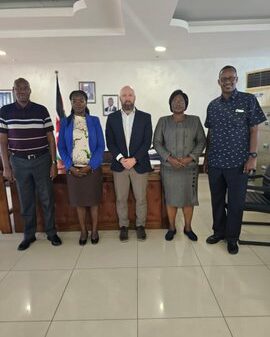NAIROBI, December 1 – With 7.5 percent of married couples in Kenya being discordant, where one is HIV positive and another negative, marriage is now seen as a risk factor to catching the virus.
“It was in 1995 when I went for an antenatal clinic for my fourth pregnancy. At that time, we did not know much about HIV, it was not given a human face so we did not have counselors; there were no ARV’s and HIV was not to be talked about. It was a taboo,” Ann Odhiambo (not her real name) remembers.
“We were forced to it because we were not given an option to choose,” she goes, adding that it was very much unlike Voluntary Counseling and Testing Centers (VCT’s) where you walk in out of free will.
“I had not even discussed it with my husband and I had not even decided I was to do a HIV test but to me it wasn’t a big deal because I was married and I couldn’t get HIV. In fact those days it wasn’t HIV, it was AIDS,” Ann narrates.
She says in those days, the general belief was that only unmarried, promiscuous people could get the virus.
The hospital conducted three tests on her – HIV, haemoglobin and a test for sexually transmitted infections (STI). “I was to come for the hemoglobin and the STI test results after a week but had to stay another two weeks to get the HIV test results.”
After four years of marriage and three children with a fourth on the way, Ann least expected the news she received.
“I found this nurse and some others outside, but she called my name first and I was like how nice, you did me a big favour because I need to go back and rest,” she says.
“She wanted to break the news but she didn’t know how to. She kept herself busy by washing her hands in the sink, walking up and down and asking me many questions like how many tests I have done and what results I have taken.”
The nurse then told her that the tests had found some strain of HIV.
“I was from a Christian background, I had not had sex with anyone dying, and my husband was healthy so how could I have it?” she wondered.
She was then referred to the Kenyatta National Hospital but she declined because to her it was already a death sentence.
“I went to the house, I couldn’t wait for my husband to come so I went to his office and threw the results on the table and told him ‘congratulations you have done it’.”
Although the couple later resolved to move on together, it didn’t last long.
“We were together for some short time and then he decided to mess around and I could always blame it on how I broke the news to him.”
“I would also keep on telling people that he is messing around and he has already infected me with the virus.”
Looking back, Ann says if she had received the proper counseling before the results, she would have communicated better with her husband.
According to the Kenya AIDS Indicator Survey released in July this year, two thirds of people testing HIV positive in Kenya are in marriage or cohabiting couples.
It further states that 80 percent of HIV infected Kenyans do not know their status.
































